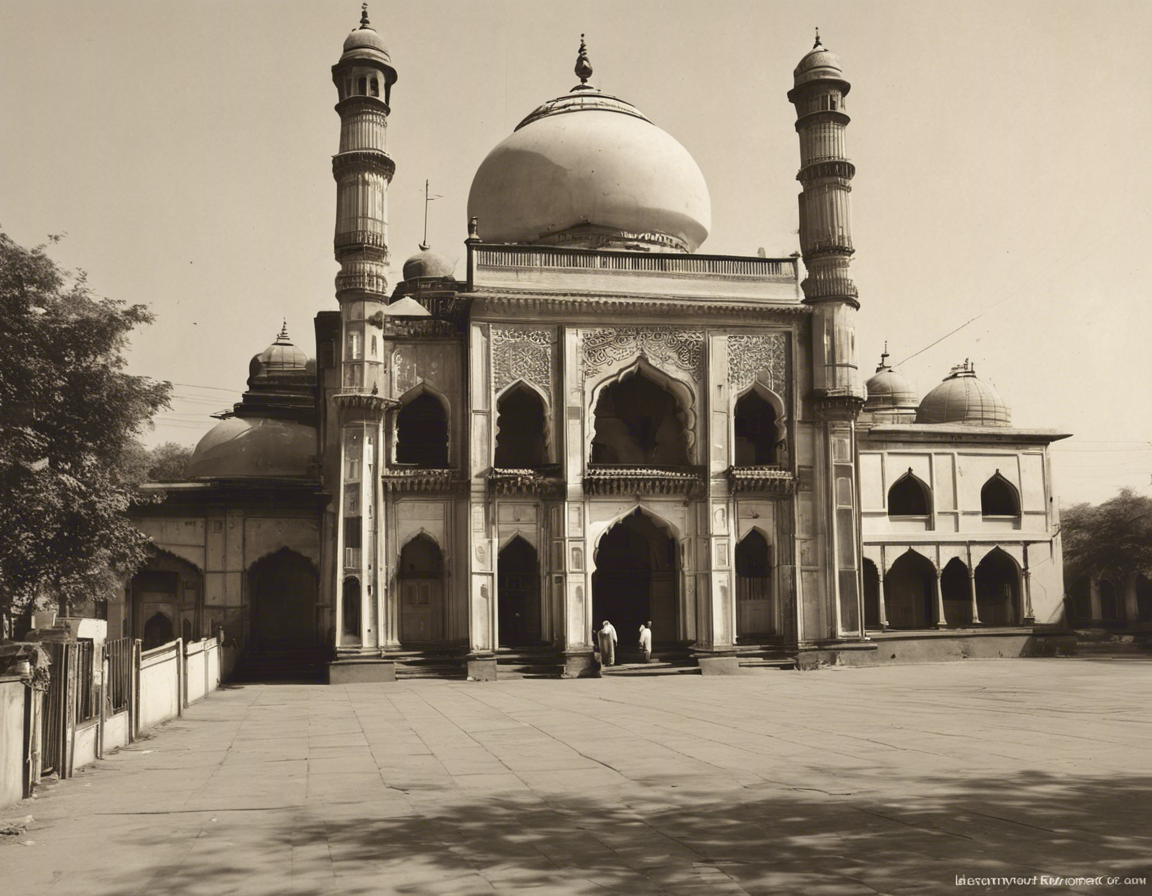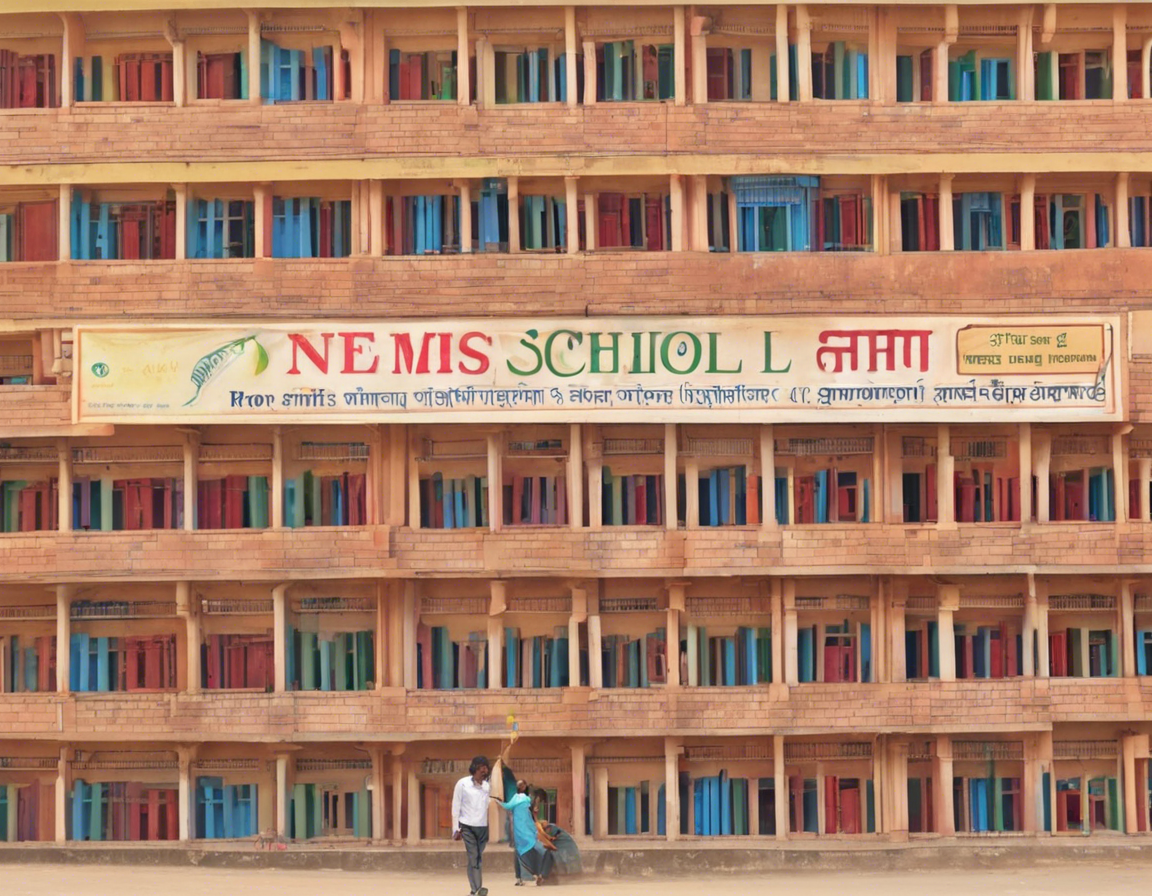The Gyanvapi Masjid is a historical mosque located in Varanasi, India. Its history is intertwined with that of the famous Kashi Vishwanath Temple, making it a site of significant cultural and religious importance. This article will delve into the rich history of the Gyanvapi Masjid, exploring its origins, construction, controversies, and its place in contemporary society.
Origins and Construction of Gyanvapi Masjid
The Gyanvapi Masjid was built in the 17th century by Mughal Emperor Aurangzeb. It is believed that the mosque was constructed upon the ruins of the original Kashi Vishwanath Temple, one of the holiest Hindu temples dedicated to Lord Shiva. The name “Gyanvapi” translates to “well of knowledge,” referring to the sacred well located within the mosque complex. The mosque’s architecture reflects Mughal design elements, with its domes, minarets, and intricate carvings showcasing the artistic prowess of the period.
The Controversy Surrounding Gyanvapi Masjid
The construction of the Gyanvapi Masjid on the site of the Kashi Vishwanath Temple has been a source of controversy and tension between Hindu and Muslim communities for centuries. Hindus believe that the mosque stands on the site of one of the most revered temples in India, and many consider its construction as a symbol of religious oppression. Over the years, various groups have called for the restoration of the original temple or the relocation of the mosque to another site.
Significance and Cultural Heritage
Despite the controversies surrounding its origins, the Gyanvapi Masjid is a symbol of India’s diverse cultural heritage. The mosque’s presence in Varanasi, one of the oldest continuously inhabited cities in the world, reflects the syncretic nature of Indian society, where Hindu and Muslim traditions have coexisted for centuries. The Gyanvapi Masjid stands as a testament to the shared history of these two communities, serving as a site of pilgrimage for both Hindus and Muslims.
Preservation Efforts and Conservation
In recent years, efforts have been made to preserve and protect the Gyanvapi Masjid as a historical monument. The Archaeological Survey of India has conducted restoration work on the mosque, ensuring that its architectural integrity is maintained for future generations. The Gyanvapi Masjid is now a protected heritage site, drawing tourists and pilgrims from around the world to witness its beauty and significance.
Frequently Asked Questions (FAQs) about Gyanvapi Masjid
- Is the Gyanvapi Masjid open to visitors?
-
Yes, the Gyanvapi Masjid is open to visitors of all faiths. However, certain restrictions may apply during prayer times.
-
What is the significance of the well of knowledge (Gyanvapi) within the mosque?
-
The well of knowledge is believed to have healing properties, and pilgrims often seek its waters for spiritual purification.
-
Are there any ongoing legal disputes regarding the Gyanvapi Masjid?
-
Yes, there are ongoing legal disputes regarding the ownership and status of the mosque. These disputes stem from its disputed origins and historical controversies.
-
Can visitors witness both Hindu and Islamic rituals at the Gyanvapi Masjid?
-
While the primary function of the mosque is for Islamic prayers, visitors may witness Hindu rituals being performed in the vicinity, highlighting the site’s syncretic nature.
-
Are there any restrictions on photography or filming inside the Gyanvapi Masjid?
- Visitors are generally not allowed to take photographs or film inside the mosque out of respect for its religious significance. However, photography is permitted in designated areas outside the mosque.
In conclusion, the Gyanvapi Masjid is not just a place of worship but a symbol of India’s multicultural heritage. Its complex history reflects the rich tapestry of religious and cultural interactions that have shaped the country over centuries. By understanding and appreciating the significance of the Gyanvapi Masjid, we can gain insights into the diverse fabric of Indian society and the need to preserve its historical treasures for future generations.


